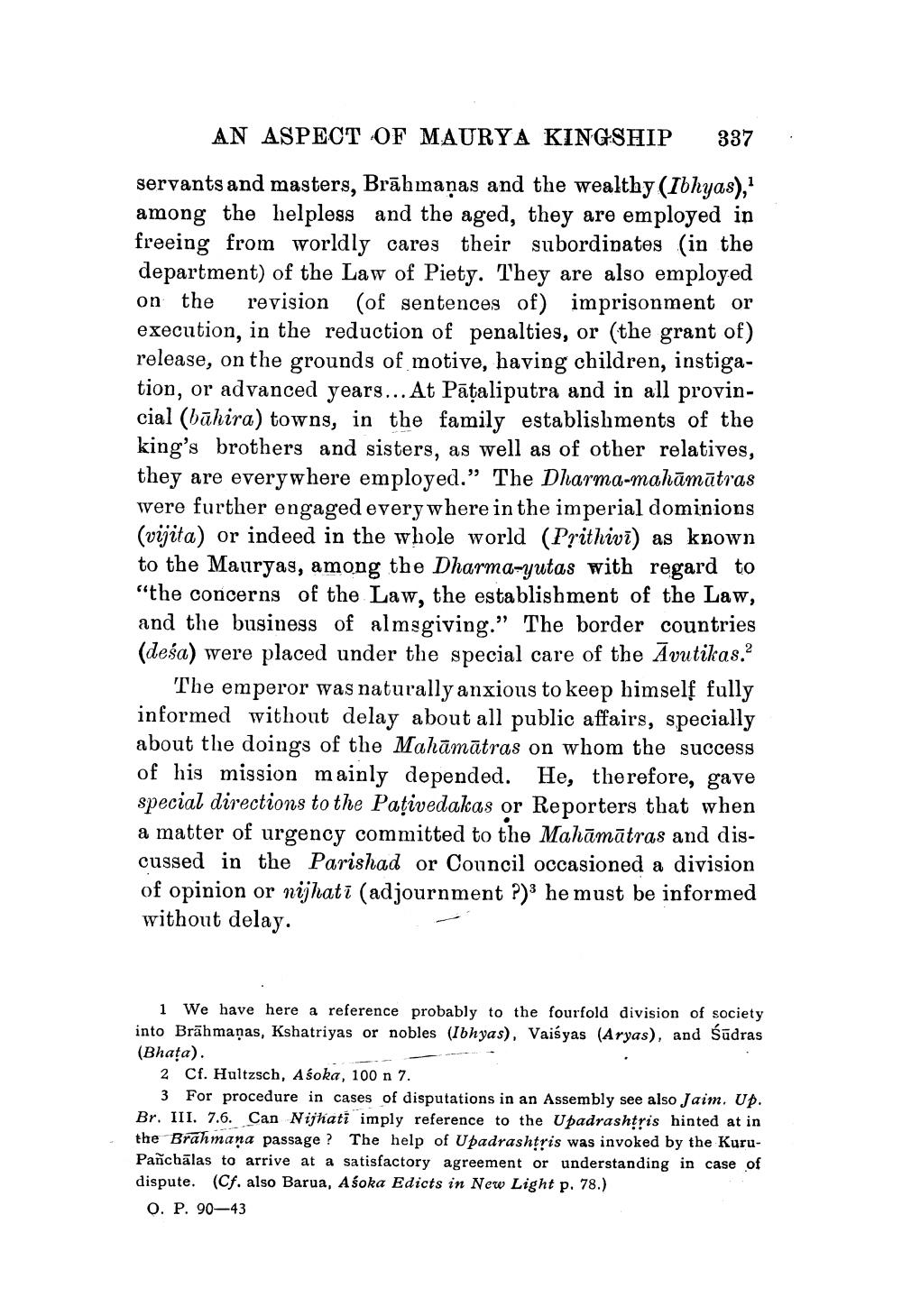________________
AN ASPECT OF MAURYA KINGSHIP 337 servants and masters, Brāhmaṇas and the wealthy (Ibhyas), among the helpless and the aged, they are employed in freeing from worldly cares their subordinates (in the department) of the Law of Piety. They are also employed on the revision (of sentences of) imprisonment or execution, in the reduction of penalties, or (the grant of) release, on the grounds of motive, having children, instigation, or advanced years... At Pataliputra and in all provincial (būhira) towns, in the family establishments of the king's brothers and sisters, as well as of other relatives, they are everywhere employed.” The Dharma-mahāmātras were further engaged everywhere in the imperial dominions (vijita) or indeed in the whole world (Prithivi) as known to the Mauryas, among the Dharma-yutas with regard to “the concerns of the Law, the establishment of the Law, and the business of almsgiving.” The border countries (deśa) were placed under the special care of the Āvutikas.?
The emperor was naturally anxious to keep himself fully informed without delay about all public affairs, specially about the doings of the Mahāmātras on whom the success of his mission mainly depended. He, therefore, gave special directions to the Pațivedakas or Reporters that when a matter of urgency committed to the Mahāmātras and discussed in the Parishad or Council occasioned a division of opinion or nijhati (adjournment ?) he must be informed without delay.
1 We have here a reference probably to the fourfold division of society into Brāhmaṇas, Kshatriyas or nobles (Ibhyas), Vaisyas (Aryas), and Sūdras (Bhata).
2 Cf. Hultzsch, Asoka, 100 n 7.
3 For procedure in cases of disputations in an Assembly see also Jaim. Up. Br. III. 7.6. Can Nijhati imply reference to the Upadrashtris hinted at in the Brāhmana passage? The help of Upadrashtris was invoked by the KuruPanchālas to arrive at a satisfactory agreement or understanding in case of dispute. (Cf. also Barua, Asoka Edicts in New Light p. 78.)
0. P. 90-43




